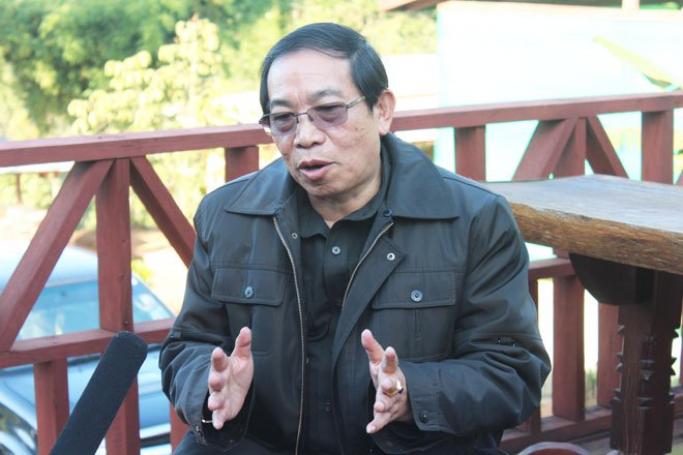Chiang Mai – The leader of the Restoration Council of Shan State has welcomed the recent signing by his group of the “Deed of Commitment for Peace and Reconciliation” with the government on Union Day, noting it opened a new page of history that leads to political dialogue.
The RCSS chairperson Lieutenant General Yawd Serk made the remark in a press conference with media representatives on February 23 at an undisclosed location in a Thai-Myanmar border town.
His group was one of four armed ethnic groups that signed the commitment on February 12.
“It is like opening a new page in the history so that we will be able to engage in political dialogue. We can say it is a success for RCSS. In the past, the president or the army or parliament had never been involved in signing an agreement like this in order to solve the armed conflicts in the country. This is the first time. So, I see it as a good sign,” he said.
Although a nationwide ceasefire agreement has not been reached between the Nationwide Ceasefire Coordination Team, an alliance of 16 ethnic armed groups, and the government, both sides have accepted the need to hold political dialogue, said Yawd Serk.
He said that although the government and the ethnic armed groups do not have complete mutual trust yet, it can be achieved through meetings and negotiations.
For example, he could freely meet with the Commander-in-Chief of the Myanmar Armed Forces Senior General Min Aung Hlaing and other top military officers on February 13 and through this mutual trust can be built up.
The RCSS and the central government agreed a ceasefire in November 2011. Although the RCSS is not a member of the NCCT, it attended the meetings seeking a nationwide ceasefire.
Speaking on the recent fighting between government troops and the Kokang forces, Yawd Serk said the Chinese government was not involved in the fighting. He also noted that the RCSS was not involved because the issue is not related to his group, he said.
“The incidents occurring in Kokang area are related only to Kokang,” said Yawd Serk. “The [Kokang] conflict is an internal problem existing since 2009. I think it is a problem between Kokang and the government army.”
On February 12, only four armed groups out of 13 at the Union Day gathering in Nay Pyi Taw, signed the Deed of Commitment for Peace and Reconciliation. These groups were the RCSS, Karen National Union, Democratic Karen Benevolent Army, and the Karen National Union/Karen National Liberation Army Peace Council.
You are viewing the old site.
Please update your bookmark to https://eng.mizzima.com.
Mizzima Weekly Magazine Issue...
14 December 2023
Spring Revolution Daily News f...
13 December 2023
New UK Burma sanctions welcome...
13 December 2023
Spring Revolution Daily News f...
12 December 2023
Spring Revolution Daily News f...
11 December 2023
Spring Revolution Daily News f...
08 December 2023
Spring Revolution Daily News f...
07 December 2023
Diaspora journalists increasin...
07 December 2023
Mizzima interview with Mr Adriano Campolina, Chief Executive, Action Aid International












